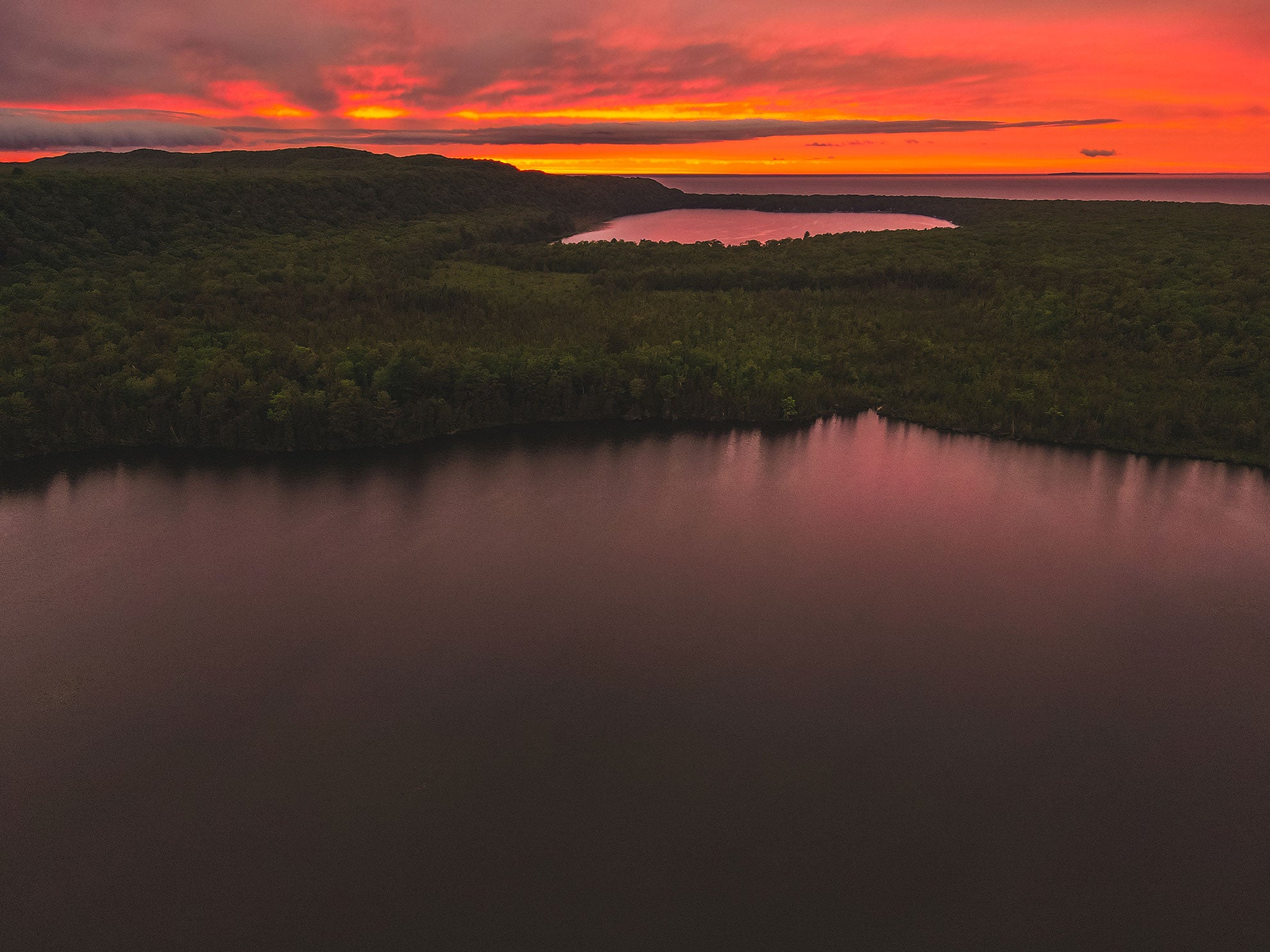Earthjustice goes to court for our planet.
We’re here because the earth needs a good lawyer.
Oil Giant Enbridge Defies Line 5 Pipeline Shutdown Order, Faces Profit Seizures
This page was published 4 years ago. Find the latest on Earthjustice’s work.
Michigan Gov. Gretchen Whitmer ordered fossil fuel company Enbridge to shut down its dangerous Line 5 oil pipeline, which runs beneath the Straits of Mackinac in the Great Lakes, by May 12. Whitmer issued the order after she terminated the pipeline’s 1953 easement.
Enbridge is refusing to comply and continues to operate the pipeline. If it spills, Line 5 could contaminate the world’s largest source of fresh surface water. The Army Corps of Engineers announced on June 23 that it would perform an environmental impact statement on Line 5.
Earthjustice, in partnership with the Native American Rights Fund, represents the Bay Mills Indian Community in the Tribe’s fight against Line 5 to protect the Straits and the Tribe’s treaty rights throughout waters in Michigan.
What’s happening now?
- Enbridge is now operating the existing Line 5 pipeline illegally.
- Enbridge still needs permit approvals from both the Michigan Public Service Commission and the Army Corps of Engineers in order to proceed with the Line 5 tunnel replacement
- Gov. Whitmer delivered a letter to Enbridge outlining the state’s intent to seize the company’s profits it derives from its illegal use of the now-revoked pipeline easement lands, if the state wins in the ongoing lawsuit filed by Michigan Attorney General Dana Nessel.
- The state’s lawsuit seeks to make it permanent that no more oil will flow through the dual pipelines.
- On May 10, the Bay Mills Indian Community passed a rare and permanent action to banish Enbridge from its reservation.
Is this the end of Line 5?
- Not yet. Enbridge is seeking permits to reroute Line 5 through a proposed $500 million tunnel beneath the Straits of Mackinac.
- If Enbridge secures the necessary permits to build and reroute the pipeline in the tunnel, a separate easement for the proposed tunnel would allow the oil to continue flowing under the Straits for 99 years.
- Many state and federal agencies are involved in permitting the proposed tunnel and pipeline reroute.
- Construction of the replacement pipeline is significantly delayed after the Army Corps of Engineers announced that it would perform an environmental impact statement on Line 5.
- Bay Mills Indian Community, represented by Earthjustice and the Native American Rights Fund, is opposing Enbridge’s permit applications for the proposed Line 5 tunnel construction project. (More details)
Why is an oil pipeline in the Straits dangerous?
- The Straits of Mackinac is a 4-mile-wide waterway that connects Lake Michigan and Lake Huron. The Great Lakes are the largest source of fresh water in the world, supplying drinking water for 48 million people.
- An oil spill would threaten Bay Mills Indian Community’s very identity and devastate commercial fisheries. The Straits of Mackinac is a place of religious and cultural significance to Bay Mills. (Read about Bay Mills’ fight.)
- Enbridge caused the largest inland oil spill in our nation’s history when another one of its pipelines released nearly one million gallons of oil into Michigan’s Kalamazoo River.
How is Earthjustice involved?
- Earthjustice and the Native American Rights Fund represent Bay Mills Indian Community in their legal fight against the Line 5 pipeline. (The latest on the legal work.)
- With Earthjustice’s help, Bay Mills was granted legal standing to intervene in the Michigan Public Service Commission’s proceedings — becoming the first Tribal Nation to do so.
- In collaboration with Bay Mills’ scientists, Earthjustice submitted written comments opposing Enbridge’s proposal to other agencies with permitting authority, including the U.S. Army Corps of Engineers and Michigan’s Department of Environment, Great Lakes, and Energy.
- Across the country, Earthjustice attorneys partner with Tribes, Native groups, and Indigenous communities to ensure their natural and cultural resources are protected for future generations. Learn more.
